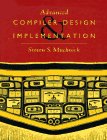
Programming Languages and Translators
Fall 2014
 |
||
| COMS W4115 Programming Languages and Translators Fall 2014 |
||
Class meets Mondays and Wednesdays 4:10 - 5:25 PM 535 Mudd.
| Name | Office hours | Location | |
|---|---|---|---|
| Prof. Stephen A. Edwards | sedwards@cs.columbia.edu | see my home page | 462 CSB |
| Olivia Byer | okb2102@barnard.edu | Th 4-6 | Open area, 5th floor, CSB |
| Kuangya Zhai | kyzhai@cs.columbia.edu | T 2-4 | TA Room, 1st Floor, Mudd |
| Weiyuan Li | wl2453@columbia.edu | W 1-3 | Open area, 5th floor, CSB |
| Vaibhav Jagannathan | vj2192@columbia.edu | W 10-12, Th 1-3 | TA Room, 1st Floor, Mudd |
The goal of PLT is to teach you both about the structure of computer programming languages and the basics of implementing compilers for such languages.
The course will focus mostly on traditional imperative and object-oriented languages, but will also cover functional and logic programming, concurrency issues, and some aspects of scripting languages. Homework and tests will cover language issues. You will design and implement a language of your own design in a semester-long group project.
While few of you will ever implement a full commercial compiler professionally, the concepts, techniques, and tools you will learn have broad application.
COMS W3157 Advanced Programming: You will be dividing into teams to build a compiler, so you need to have some idea how to keep this under control. Quick test: you need to know about Makefiles and source code control systems.
COMS W3261 Computability and Models of Computation: You will need an understanding of formal languages and grammar to build the parser and lexical analyzer. Quick test: you must know about regular expressions, context-free grammars, and NFAs.
Alfred V. Aho, Monica Lam, Ravi Sethi, and Jeffrey D. Ullman. |
 |
Michael L. Scott. |
 |
Andrew W. Appel. |
 |
Lawrence C. Paulson |
 |
Steven S. Muchnick |
 |
The focus of 4115 is the design and implementation of a little language. You will divide into teams and design the goals, syntax, and semantics of your language, and implement a compiler for your language.
Exception: CVN students will do the project individually.
This is a critical part of the project and will be a substantial fraction of the grade.
Include the following sections:
 |
Dennis M. Ritchie, C Reference Manual |
| Kernighan & Ritchie, The C Programming Language | |
 |
The C Language Reference Manual (SGI) |
| Stroustrup, The C++ Programming Language | |
 |
The Java Language Specification |
 |
The C# Language Specification |
| Aho, Kernighan, and Weinberger, The AWK Programming Language |
|
Angela_Z:
Matrix Language
(KZ)
Fei Liu, Taikun Liu, Jiayi Yan, and Mengdi Zhang |
|
BuckCal:
Matrix Manipulation for Expenses
(KZ)
Lingyuan He, Ahmad Maruf, Prachi Shukla, Meng Wang, and Lan Yang |
|
ChemLab:
Chemical Equation Language
(KZ)
Alice Chang, Gabriel Lu, and Martin Ong |
|
Sheets:
What's Your Thread Count?
(KZ)
Benjamin Barg, Gabriel Blanco, Amelia Brunner, and Ruchir Khaitan |
|
GPL:
Graph Programming Language
(OB)
Qingxiang Jia, Peiqian Li, and Ephraim Park |
|
GraphQuil:
Graph Manipulation Language
(OB)
John Heizelman, Jonhatan Paul, Gemmarose Ragozzine, and Steven Weiner |
|
StateMap:
DFA Language
(OB)
Oren Finard, Jackson Foley, Alexander Peters, Brian Yamamoto, and Zuokun Yu |
|
n2n:
Relational Graphing Language
(OB)
Elisheva Aeder, Nicholas Falba, Jialun Liu, and Johan Mena |
|
DSP_Jockey:
Signal Processing Language
(SE)
Brian Bourn, Abhinav Mishra, Addisu Petros, and Vanshil Shah |
|
EGUI:
Graphical User Interface Language
(SE)
Mehul Shah |
|
EZMath:
Math Typesetting Language
(SE)
Zhejiao Chen, Piaoyang Cui, Yi Wang, and Shangjin Zhang |
|
FRY:
Flat File Data Processing Language
(SE)
Thomas DeVoe |
|
Nifty50:
Concise Programming Language
(SE)
AMSarwar Jahan |
|
Super-Serial:
Data Serialization Language
(SE)
Douglas Kaminsky |
|
Civ:
Distributed CSV Processing Language
(VJ)
Eli Bogom-Shanon, Michael Nguyen, Prateek Sinha, and Yuchen Zeng |
|
JO:
JSON Language
(VJ)
Abhinav Bajaj, Sriharsha Gundappa, Arpit Gupta, and Chase Larson |
|
Photoshop--:
Graphics Language
(VJ)
Gilbert Feig, David Figueroa, and Alana Ramjit |
|
Qlang:
Quantum Computing Language
(VJ)
Christopher Campbell, Clement Canonne, Sankalpa Khadka, Winnie Narang, and Jonathan Wong |
|
corgi:
Music Language
(VJ)
Philippe-Guilla Losembe Botumbe, Melissa O'Sullivan, Alisha Sindhwani, and Justin Zhao |
|
quark:
Quantum Computing Language
(VJ)
Linxi Fan, Jamis Johnson, Daria Jung, and Parthiban Loganathan |
|
rapid:
Web API Language
(VJ)
Nate Brennand, Benjamin Edelstein, Brendon Fish, Daniel Schlosser, and DongHee Shin |
|
GAWK:
RPG Language
(WL)
Albert Cui, Karen Nan, Michael Raimi, and Mei-Vern Then |
|
SNL:
Role-playing Game Language
(WL)
James Lin, Alex Liu, Daniel Maxson, and Andre Paiva |
|
do-fifty-two:
Card Game Language
(WL)
Yichi Liu, Jayson Ng, William Target, Josephine Tirtanata, and Yunfei Wang |
|
pumpkin:
Functional Language
(WL)
Joshua Boggs, Christopher Evans, Gabriela Melchior, and Clement Robbins |
| 40 % Project |
| 20 % Midterm |
| 30 % Final |
| 10 % Homework |
You will collaborate with your own small group on the programming project, but you may not collaborate with others on homeworks. Groups may share ideas about the programming assignments, but not code. Any two groups found submitting similar code will receive zero credit for the whole assignment, and repeat offenses will be referred to the dean. See the Columbia CS department academic policies for more details.